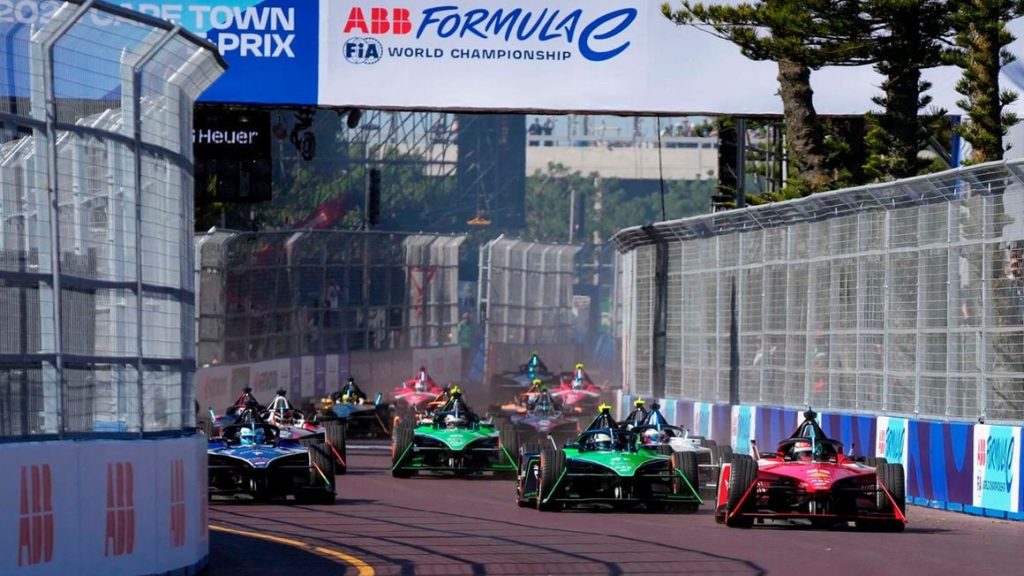Rwanda has recently entered the race to host a Formula 1 event, setting off a competition between three African countries: Rwanda, South Africa, and Morocco. While South Africa and Morocco have previously hosted Formula 1 races, there is no certainty that they will secure the next hosting opportunity, as the competition is fierce.
Africa has been without a Formula 1 race since 1993, but last year, Rwanda seized the chance to enter the bidding after reports surfaced that South Africa, initially expected to feature in the 2024 calendar, was sidelined due to political concerns over its stance on the Russia-Ukraine war.
Rwanda quickly organized its bid, though many details remain under wraps. The country’s plan reportedly includes high-profile support from politicians, sports icons, and lobbyists, along with proposed investments in commercial and hosting rights. Kigali is also eyeing a potential racing circuit near the under-construction Bugesera airport.
Rwanda’s case is further strengthened by its successful sports sponsorship ventures, including partnerships with global football clubs like Arsenal, Paris Saint-Germain, and Bayern Munich, through the “Visit Rwanda” tourism campaign. These partnerships helped Rwanda generate $620 million in 2023, marking a significant increase from the previous year. The Rwandan government has emphasized how this success has allowed the country to transition from merely consuming sports to becoming an active participant in the global sports industry.
Government spokesperson Yolande Makolo acknowledged Rwanda’s interest in the bid but refrained from commenting on any ongoing discussions with Formula 1. Rwanda’s proactive approach has gained the attention of Formula 1 CEO Stefano Domenicali, who acknowledged Rwanda as a “serious contender” in the race, adding that the parties would meet to discuss the bid in September.
However, Formula 1 executives have remained tight-lipped about Rwanda’s chances against South Africa and Morocco. South Africa, with its Kyalami circuit, hosted Formula 1 events in the past and requires minimal investment to make the track race-ready again. Morocco, which last hosted a race in 1958, has been pushing for a return, banking on the popularity of Formula 1 in nearby Middle Eastern countries like Saudi Arabia and Bahrain.
Despite this, Formula 1 has yet to confirm a new host country for the African Grand Prix. Currently, there are eight countries bidding for the coveted spot, including Rwanda, South Africa, Morocco, and Colombia. South Africa’s Motorsport Association remains optimistic about Kyalami hosting a Grand Prix within the next few years, although Anton Roux, the association’s chairman, admitted that securing a slot is challenging due to the reluctance of current host countries to give up their places on the calendar.
The expansion of Formula 1 events globally has raised concerns about the increasing number of races, with some drivers, including reigning champion Max Verstappen, voicing concerns over the already packed schedule. This makes the decision to add a new African venue even more complex.
Rwanda’s potential bid is part of its larger strategy to become a hub for major global sporting events. The country is set to host the 2025 UCI Road Cycling World Championship and is a key sponsor of the NBA-backed Basketball Africa League. In December, Kigali will also host the FIA General Assembly, bringing together top motorsport figures and champions.
If Rwanda is successful in its Formula 1 bid, the country will need to invest heavily in infrastructure. Building a Grand Prix track could cost up to $270 million, with annual maintenance fees of $18.5 million. Additional costs for infrastructure like grandstands, safety barriers, and facilities for attendees could push the investment further, while hosting fees, similar to those paid by countries like Azerbaijan and Saudi Arabia, could reach $55 million annually.
While hosting a Formula 1 race is a prestigious opportunity, it comes with financial challenges. Track owners and host countries often see minimal returns from race events, as most of the revenue from broadcasting rights and sponsorships goes to Formula 1’s commercial rights holders. Despite this, securing a Formula 1 race would undoubtedly elevate Rwanda’s status on the global sporting stage and provide a significant boost to its growing sports tourism industry.




















